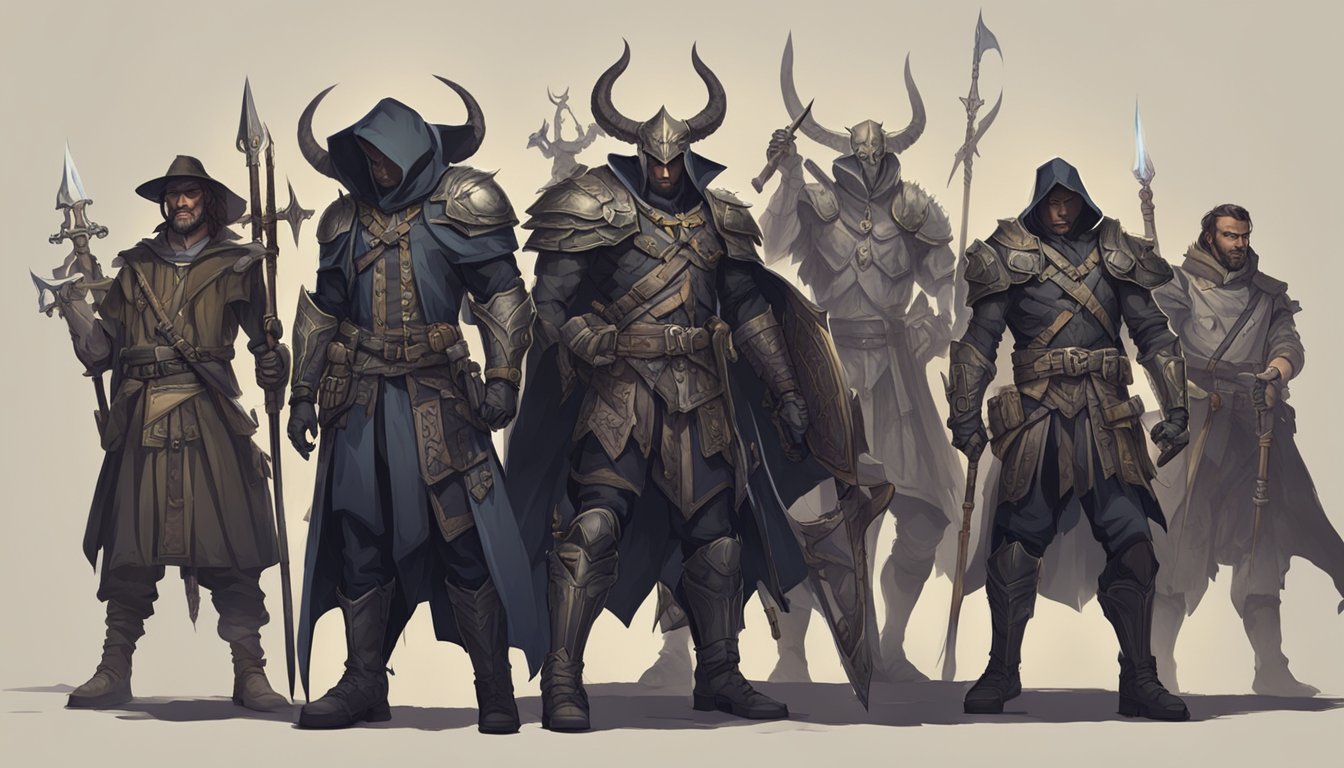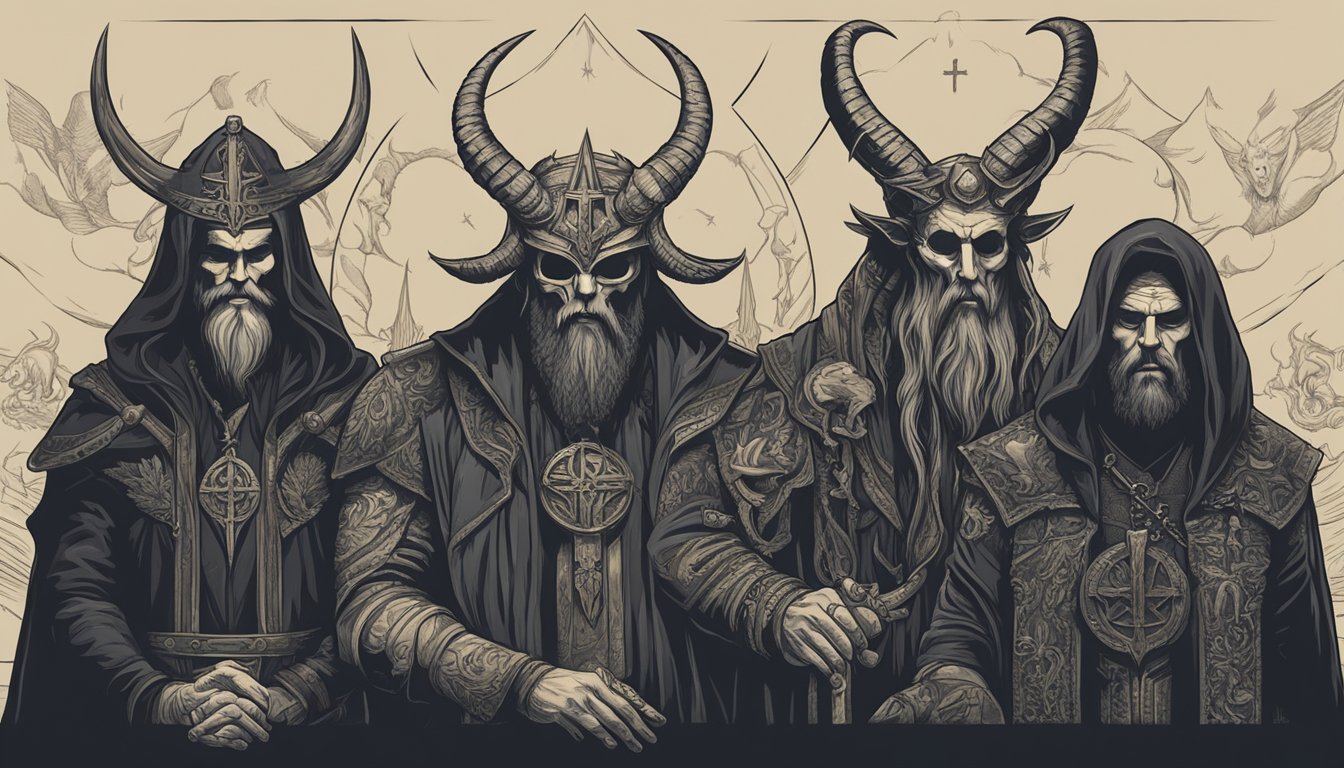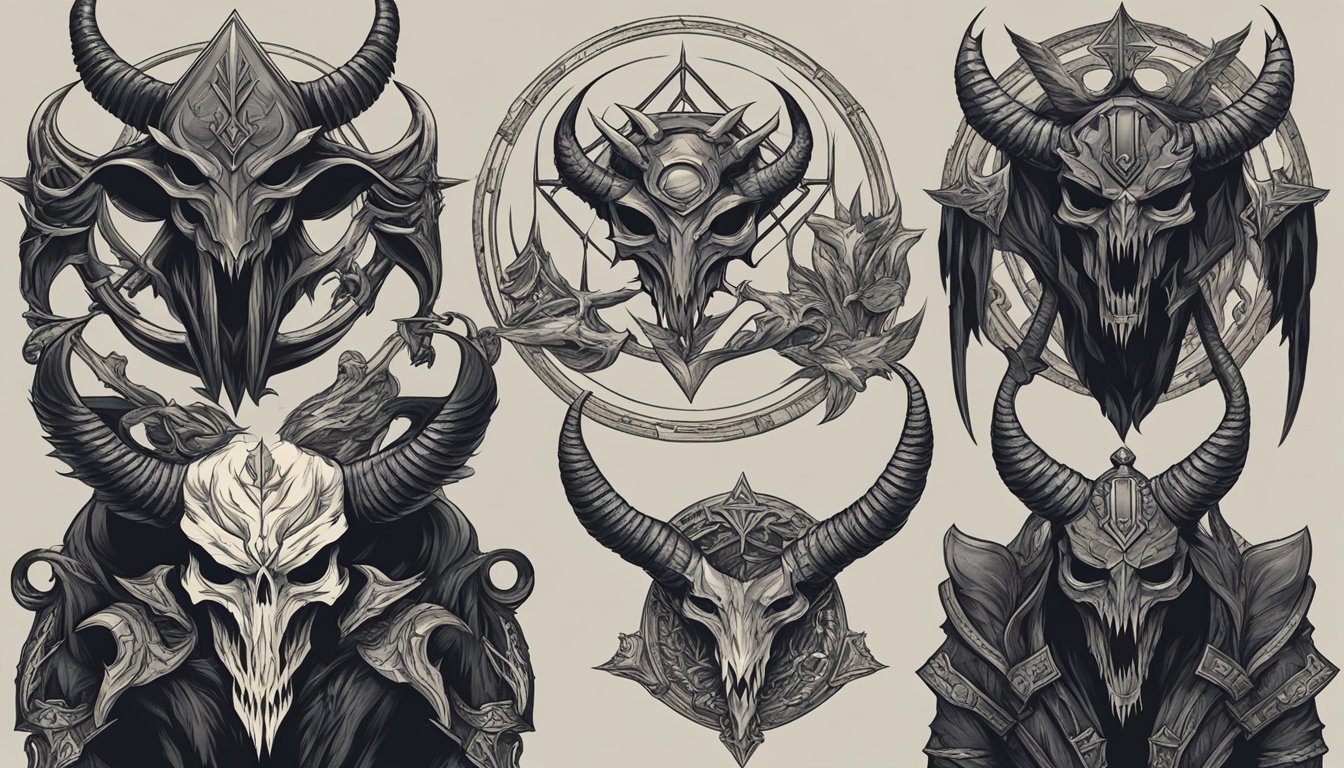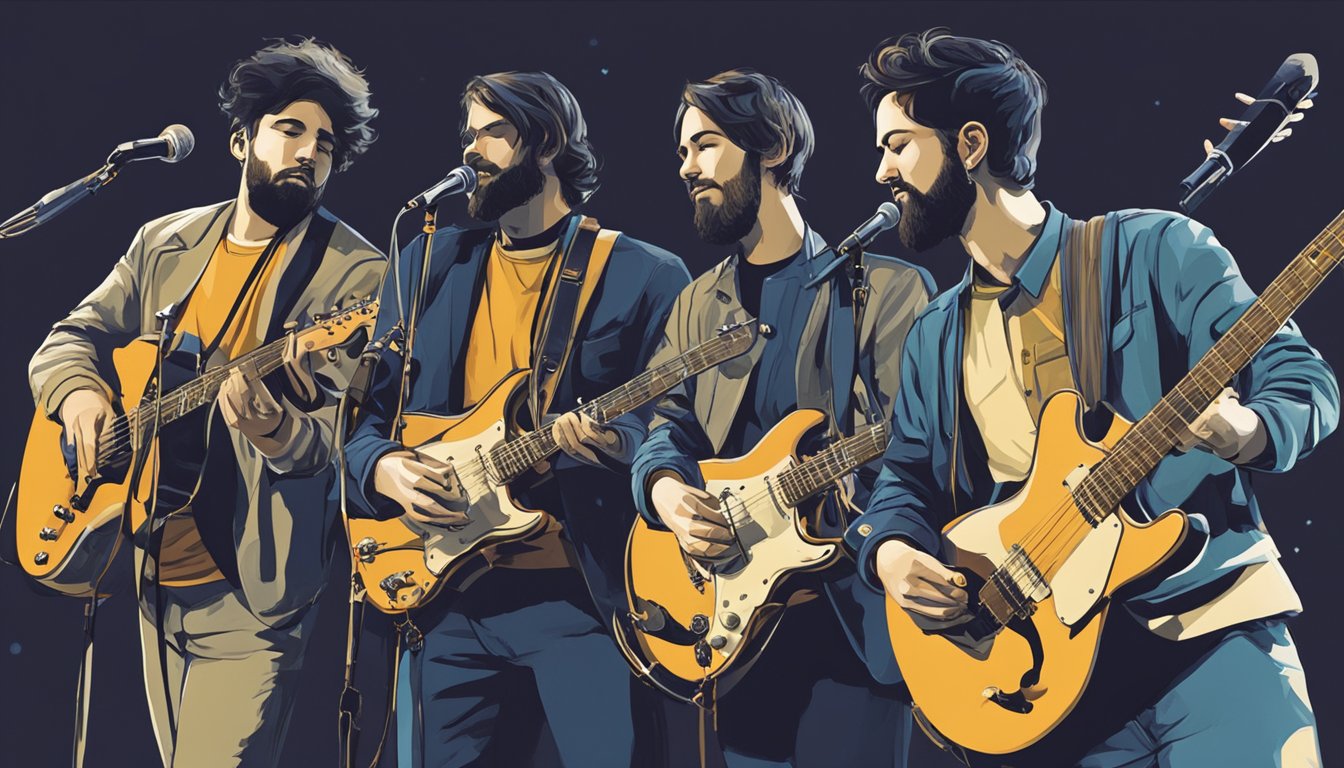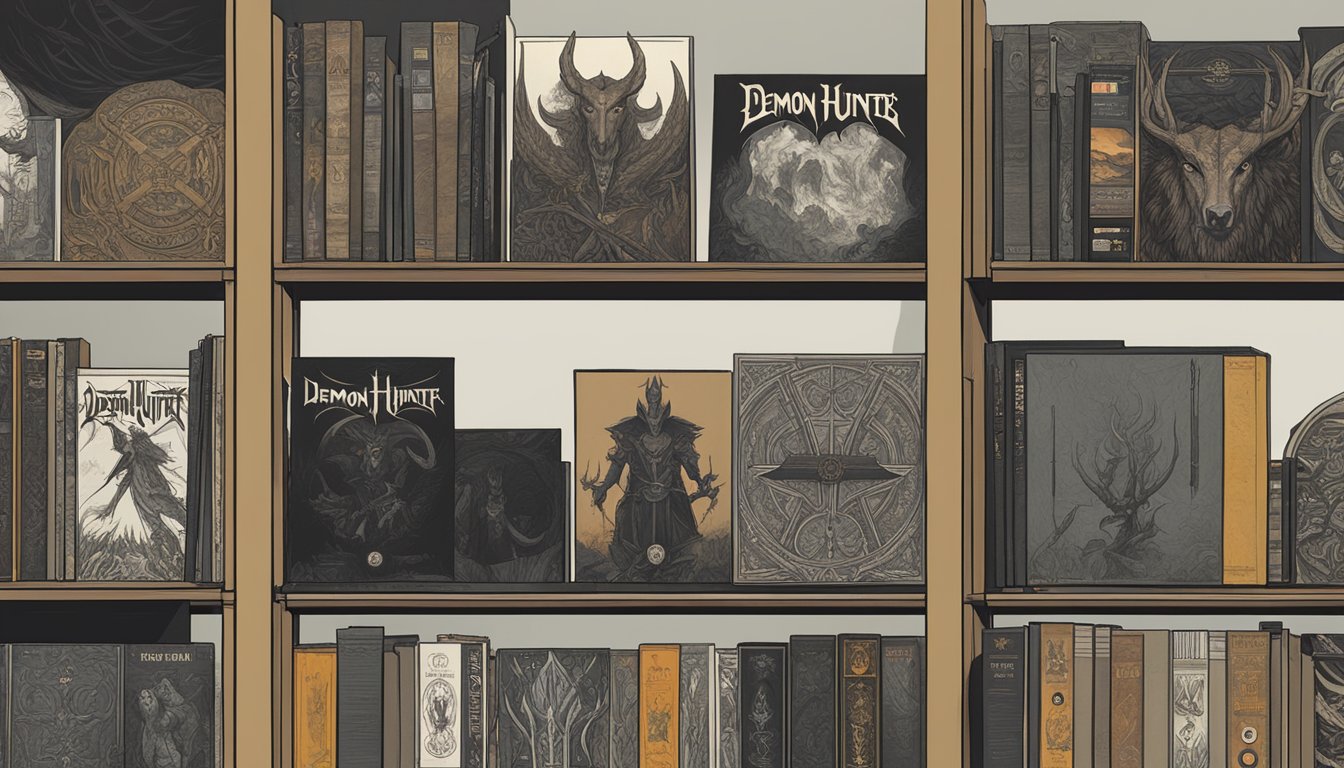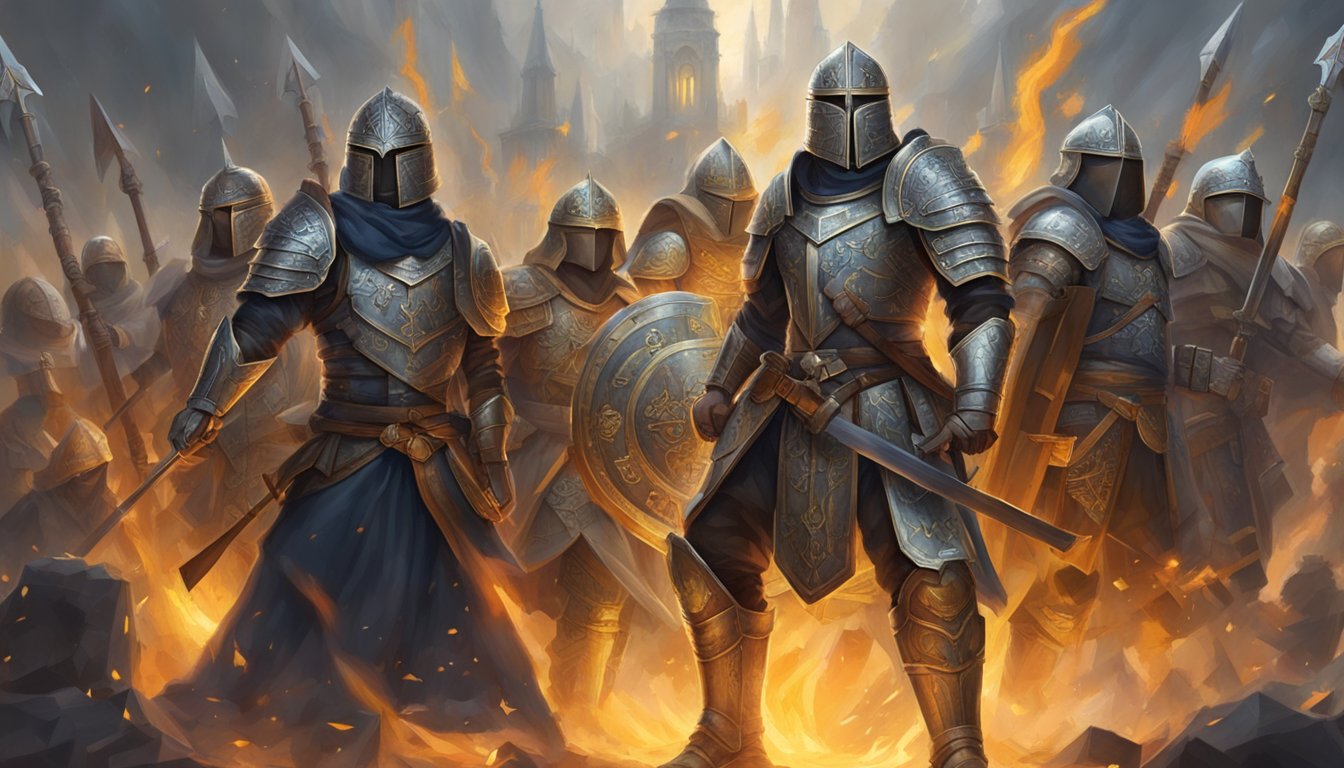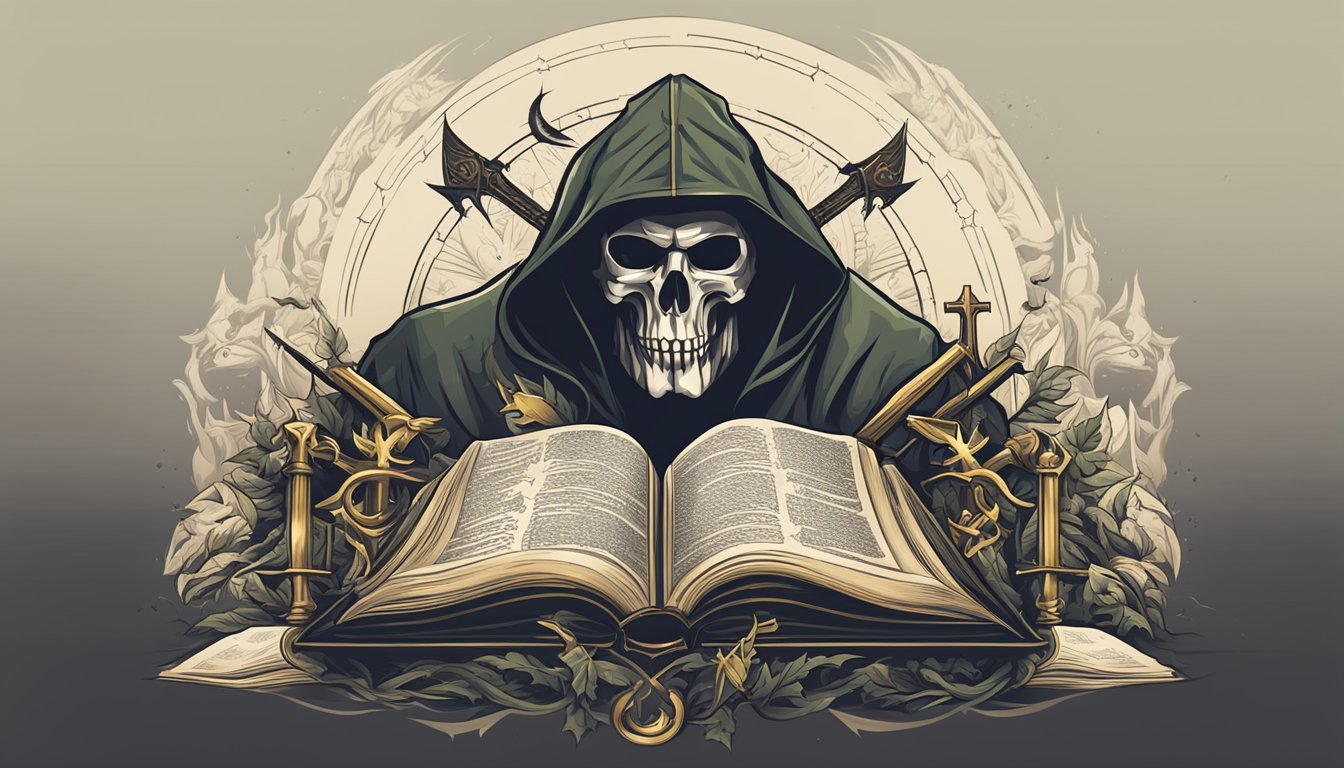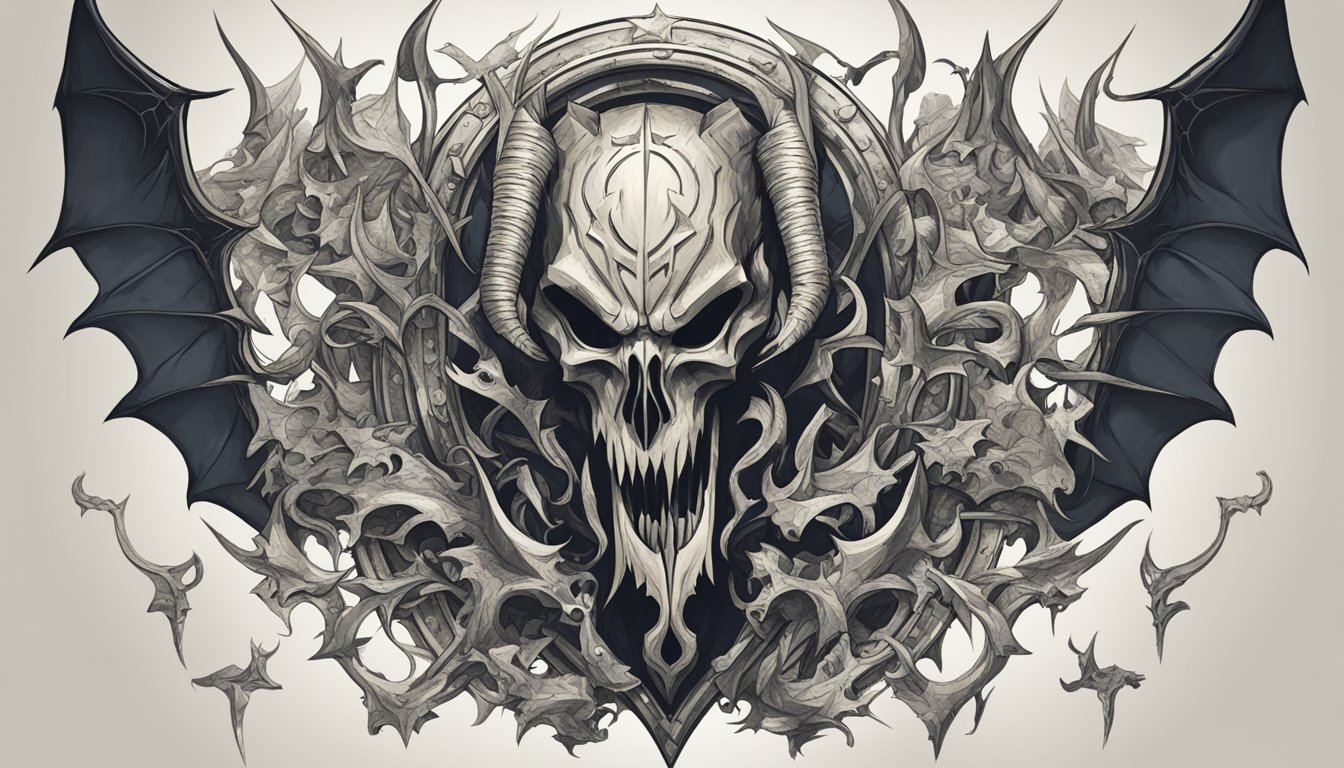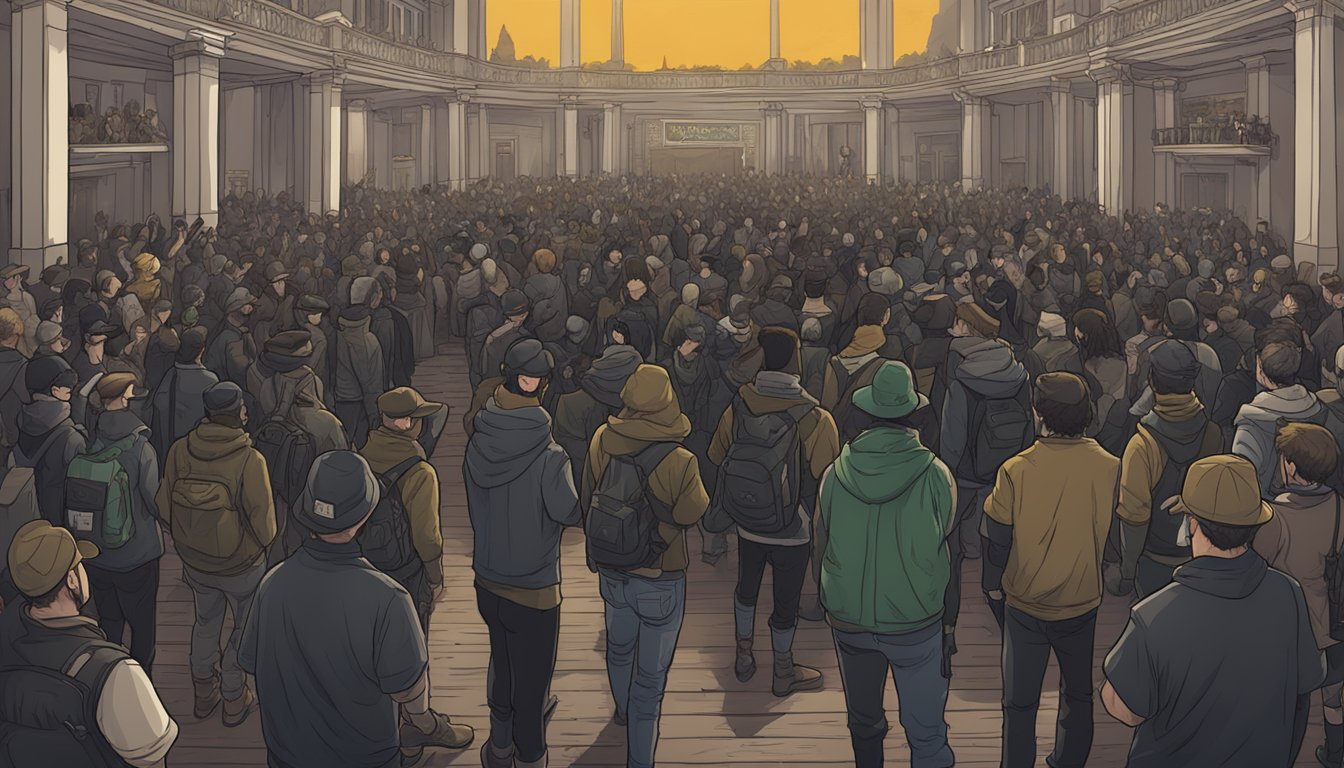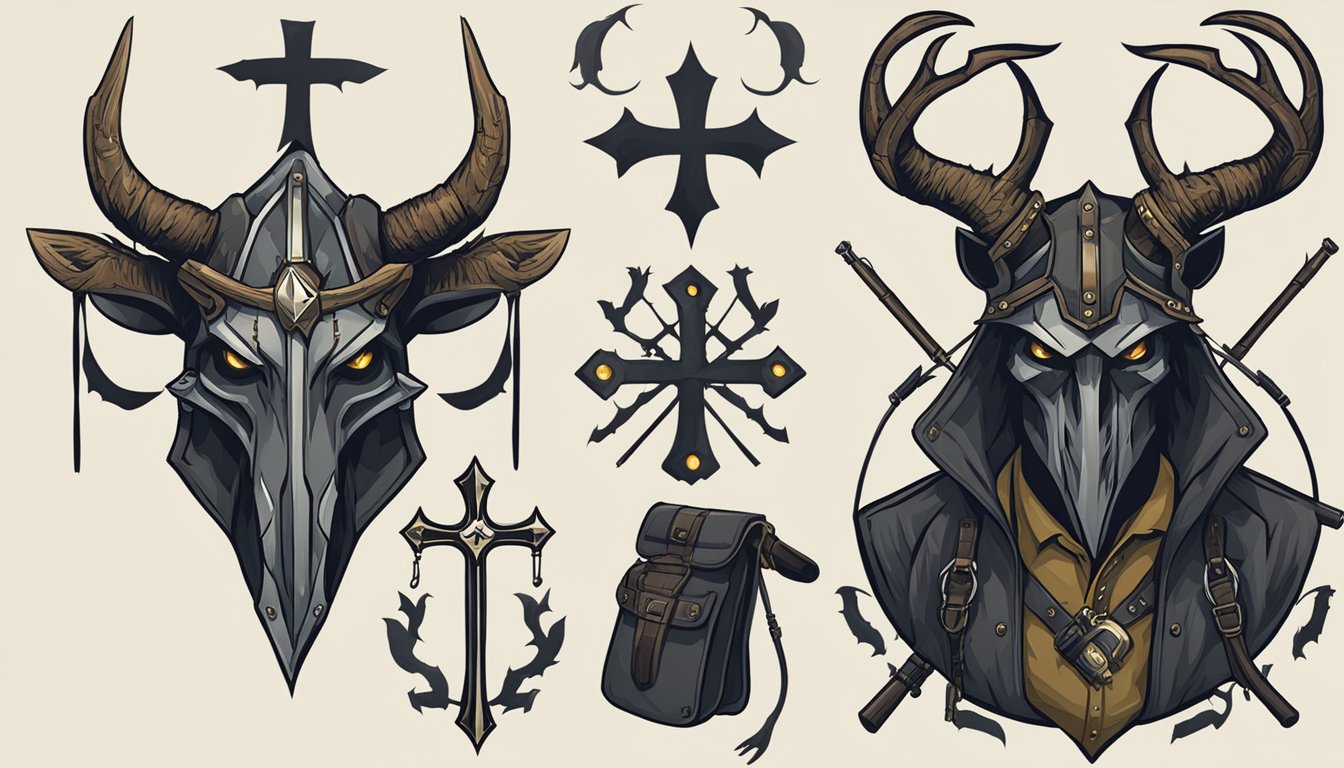Demon Hunter is a well-known heavy metal band that has caused controversy in the Christian music scene since their debut in 2000. The band’s name itself, “Demon Hunter,” raises questions about their faith and message. Some have questioned whether the band is truly Christian or if they simply use the label to sell records. In this article, we will explore the question of whether Demon Hunter is a Christian band and examine the evidence for and against this claim.
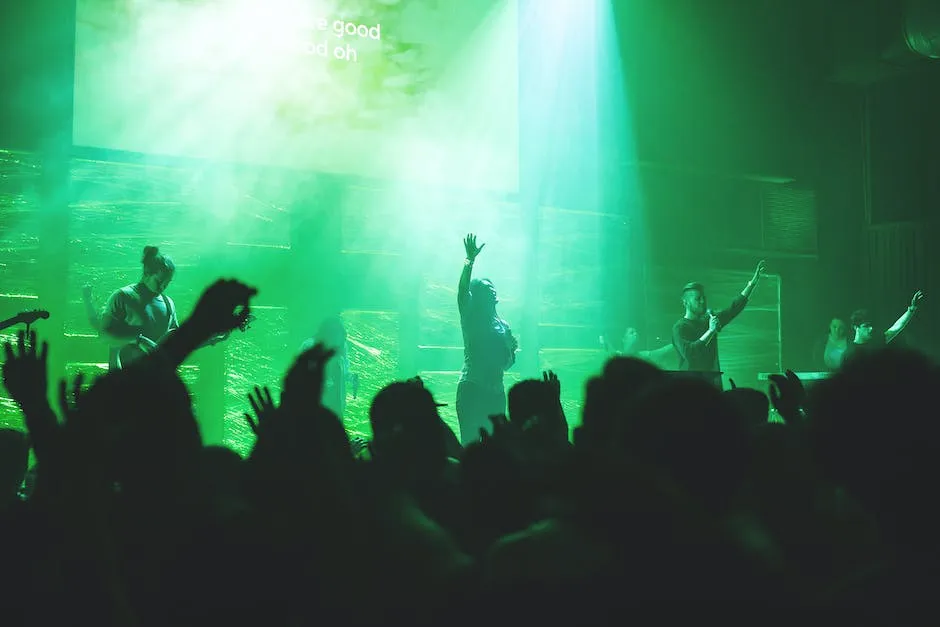
Origins and History
Demon Hunter was formed in Seattle, Washington, in 2000 by brothers Don and Ryan Clark. The band’s original lineup consisted of the Clark brothers, along with guitarist Kris McCaddon, bassist Joe Dunn, and drummer Jesse Sprinkle. The band’s debut album, “Demon Hunter,” was released in 2002, and they have since released nine more studio albums, as well as several live albums and compilations. The band has sold over 600,000 albums and has been nominated for numerous awards in the Christian music industry.
Key Takeaways
- Demon Hunter is a heavy metal band that has caused controversy in the Christian music scene since their debut in 2000.
- The band was formed in Seattle, Washington, by brothers Don and Ryan Clark, and has released ten studio albums to date.
- The question of whether Demon Hunter is a Christian band is a controversial one, with evidence for and against the claim.
Origins and History

Formation and Early Years
Demon Hunter is a Christian metal band that was formed in 2000 in Seattle by brothers Ryan Clark and Don Clark. Prior to forming Demon Hunter, the brothers played together in the band Training for Utopia. The band was initially conceived as a project band by the Clarks, who had played together previously in the initially Coalesce and Neurosis influenced but later more experimental band Training for Utopia. Ryan had previously played guitar in hardcore band Focal Point, who released a studio album, Suffering of the Masses, on Tooth & Nail Records in 1996 when Ryan was a teenager.
Rise to Fame
Demon Hunter quickly rose to fame with their self-titled debut album, which was released in 2002 on Solid State Records. The album was well-received by both critics and fans, and helped establish the band as one of the leading acts in the Christian metal scene. Since then, the band has released several more albums, including “The Triptych”, “Storm the Gates of Hell” and “True Defiance”.
Throughout their career, Demon Hunter has been known for their heavy sound and their unapologetic Christian message. While some have questioned the band’s commitment to their faith, others have praised them for their willingness to take risks and explore new musical territory while staying true to their beliefs.
Musical Style and Genre
https://www.youtube.com/watch?v=8Pf-tw2Pibo&embed=true
Genre Classification
Demon Hunter is a band that has been classified as Christian metal, metalcore, heavy metal, and alternative metal. They are known for their heavy and aggressive sound, which is often accompanied by intense vocals and guitar riffs. The band’s music is characterized by its powerful and dark themes, which often touch on topics such as faith, redemption, and spiritual warfare.
Evolution of Sound
Over the years, Demon Hunter has evolved its sound and musical style. The band’s early albums were more firmly rooted in the metalcore genre, with songs that featured chugging guitar riffs, breakdowns, and screaming vocals. However, as the band matured, they began to incorporate elements of heavy metal and alternative metal into their music.
One of the defining characteristics of Demon Hunter’s sound is their ability to seamlessly blend different genres together. For example, on their album “The Triptych,” the band combines elements of metalcore, heavy metal, and even classical music to create a unique and compelling sound.
Overall, Demon Hunter’s musical style and genre classification have evolved over the years, but their commitment to creating powerful and intense music has remained constant. Whether you are a fan of metal, Christian metal, or just great music in general, Demon Hunter is a band that is definitely worth checking out.
Lyrical Themes and Inspiration

Demon Hunter’s music is known for its heavy sound and thought-provoking lyrics. The band has been labeled as a Christian metal band, and while their faith is a significant influence on their music, they also address personal struggles and societal issues.
Spiritual and Religious Content
Demon Hunter’s lyrics often contain spiritual and religious content, with references to Christ, faith, and hope. In their song “The Heart of a Graveyard,” the lyrics speak of redemption and salvation, with the chorus stating, “In the heart of a graveyard, we will sing a new song, for the hope that is in us, the strength to carry on.”
The band’s song “My Destiny” speaks of finding purpose and meaning in life through faith, with lyrics such as, “I found my destiny when I laid down my life, and I found my future when I lost control.”
Addressing Personal Struggles
Demon Hunter’s lyrics also address personal struggles, such as depression and suffering. In their song “Carry Me Down,” the lyrics express a desire for peace and relief from pain, with the chorus stating, “Carry me down, into the waters that I fear, let every loss and every tear, be a testament to why you’re here.”
In “I Am a Stone,” the lyrics speak of feeling alone and forgotten, but finding strength in faith, with the chorus stating, “I am a stone, I am a weight, and I know that I need to be carried away, by the strength of the one who can lift me again.”
Overall, Demon Hunter’s lyrics are a reflection of their faith and personal experiences, with a focus on spiritual and emotional growth.
Band Members and Contributions
« Is “Left Behind” a Christian Movie? Exploring the Religious Themes in the Film
Is Disturbed a Christian Band? Exploring the Band’s Religious Beliefs »
Founding Members
Demon Hunter was founded in 2000 by brothers Ryan Clark and Don Clark. Ryan is the only remaining original member of the band, as Don left in 2009 to pursue other interests. Ryan is the lead vocalist for the band and also plays guitar. Don was the lead guitarist for the band until his departure.
Line-up Changes
Over the years, Demon Hunter has had several changes to their line-up. In 2009, Don Clark left the band and was replaced by Patrick Judge, who took over as lead guitarist. Jon Dunn joined the band in 2010 as bassist, replacing Ryan Helm, who had been with the band since 2004.
Jeremiah Scott joined the band in 2011 as rhythm guitarist, replacing Kris McCaddon. Timothy “Yogi” Watts joined the band in 2019 as drummer, replacing longtime drummer, Timothy “Timo” Anderson.

Despite these changes, Demon Hunter has maintained their unique sound and style, with each member contributing their own talents and skills to the band. Ryan Clark’s powerful vocals, combined with the band’s heavy guitar riffs and driving drum beats, have made them a favorite among fans of Christian metal.
Discography and Notable Works
Demon Hunter has a vast discography with 12 studio albums, two live albums, and three compilation albums. The band’s style is known for combining nu metal sounds and metalcore with clean vocals and occasional screaming. Their music is often described as aggressive, powerful, and emotional.
Key Albums
One of Demon Hunter’s most popular albums is “The Triptych,” released in 2005. The album features hit singles like “Undying,” “One Thousand Apologies,” and “Not I.” The album’s artwork is also notable for its three-panel design, which represents the Holy Trinity.
Another successful album is “Summer of Darkness,” released in 2004. The album features hit singles like “My Heartstrings Come Undone,” “Summer of Darkness,” and “Beauty Through the Eyes of a Predator.” The album’s lyrics explore themes of depression, suicide, and spiritual warfare.

“Storm the Gates of Hell,” released in 2007, is another notable album by Demon Hunter. The album features hit singles like “Fading Away,” “Carry Me Down,” and “Storm the Gates of Hell.” The album’s lyrics explore themes of spiritual warfare, redemption, and the power of faith.
Hit Singles
Demon Hunter has released many hit singles throughout their career. “The World is a Thorn,” released in 2010, features hit singles like “Collapsing,” “Lifewar,” and “The World is a Thorn.” The album’s lyrics explore themes of spiritual warfare, redemption, and the power of faith.
“Outlive,” released in 2017, features hit singles like “Cold Winter Sun,” “Died in My Sleep,” and “Half as Dead.” The album’s lyrics explore themes of perseverance, hope, and the power of faith.
“True Defiance,” released in 2012, features hit singles like “My Destiny,” “Someone to Hate,” and “Dead Flowers.” The album’s lyrics explore themes of spiritual warfare, redemption, and the power of faith.
Demon Hunter’s latest album, “Songs of Death and Resurrection,” released in 2021, features reimagined versions of some of their most popular songs. The album’s lyrics explore themes of spiritual warfare, redemption, and the power of faith.
Christian Community and Industry

https://www.youtube.com/watch?v=N4QGtFdk45Q&embed=true
Reception in Christian Circles
Demon Hunter has been a subject of debate in Christian circles regarding their status as a Christian band. While some argue that their music is not explicitly Christian, others believe that their lyrics and values align with Christian beliefs. The band has released several Christian albums, including “The Triptych” and “Storm the Gates of Hell,” and has been signed to Christian labels such as Solid State and Tooth & Nail Records.
Despite the controversy surrounding their status as a Christian band, Demon Hunter has received positive feedback from the Christian community. Their music has been praised for its positive message and uplifting themes. In addition, the band has been known to incorporate Christian values into their live performances, including prayer and Bible readings.
Mainstream Metal Scene Interaction
Demon Hunter has also made a name for themselves in the mainstream metal scene. Their music has been well-received by metal fans and critics alike, with their album “The World Is a Thorn” receiving critical acclaim. The band has toured with several mainstream metal acts, including As I Lay Dying and Killswitch Engage.
Despite their success in the mainstream metal scene, Demon Hunter has maintained their Christian values and beliefs. The band has been vocal about their faith in interviews and has incorporated Christian themes into their music. This has earned them respect from both Christian and non-Christian fans alike.

Overall, Demon Hunter’s reception in both Christian circles and the mainstream metal scene has been positive. While their status as a Christian band may be debated, their music and values have resonated with fans of all backgrounds.
Artistic Representation
Demon Hunter’s artistic representation is a crucial aspect of their identity as a band. Their music is heavily influenced by their Christian faith, and this is evident in their album art, imagery, and stage performances.
Album Art and Imagery
Demon Hunter’s album art is often dark and intense, featuring images of skulls, demons, and other dark themes. However, their use of these images is not meant to glorify evil, but rather to represent the battle between good and evil that is central to their faith. For example, their album “Red” features a red cross on a black background, symbolizing the blood of Christ and the darkness of sin.
In addition to their album art, Demon Hunter also uses imagery in their music videos and promotional materials. For example, their music video for the song “The Last One Alive” features a post-apocalyptic world where the band members are fighting against demonic forces. This imagery reinforces the themes of their music and helps to create a cohesive artistic vision.
Stage Presence and Performances

Demon Hunter’s stage presence and performances are also an important part of their artistic representation. They are known for their high-energy shows, which often feature elaborate stage setups and pyrotechnics. However, their performances are not just about spectacle; they also strive to create a sense of community and connection with their audience.
During their shows, Demon Hunter often engages with their fans, encouraging them to sing along and participate in the performance. This creates a sense of unity and shared experience, which is an important part of their message as a Christian band. Additionally, their performances often include messages of hope and redemption, which further reinforce their faith-based message.
Overall, Demon Hunter’s artistic representation is an integral part of their identity as a band. Their use of imagery, album art, and stage performances all work together to create a cohesive artistic vision that reflects their Christian faith and the themes of their music.
Influence and Legacy
Demon Hunter has had a significant impact on the Christian music scene and beyond. As a prominent American metal band with a Christian message, they have inspired many fans and other artists with their music and message.
Impact on Music and Culture

Demon Hunter has been a trailblazer in the Christian metal scene, bringing a unique blend of heavy music and Christian lyrics to a wider audience. Their music has resonated with fans who appreciate the band’s honesty, sincerity, and spiritual depth.
Their music has also had an impact beyond the Christian music scene. Demon Hunter’s music has been featured in video games, movies, and television shows, exposing their message to a wider audience. The band has also been involved in various charitable causes, using their platform to make a positive impact on the world.
Influences on Other Artists
Demon Hunter’s influence can be seen in the work of many other metal bands, both Christian and secular. Their unique blend of heavy music and Christian lyrics has inspired many other artists to explore similar themes and sounds.
Many fans and critics have noted the influence of bands like Metallica, Slayer, and Pantera on Demon Hunter’s music. However, the band has also cited a range of other influences, including classic rock, punk, and hardcore.
In conclusion, Demon Hunter’s influence and legacy in the Christian metal scene and beyond cannot be overstated. Their music has inspired many fans and other artists, and their message of hope and redemption continues to resonate with listeners around the world.
Controversies and Criticisms

Religious Debate
Demon Hunter has been the subject of religious debate since their inception. While some fans view the band as a Christian metalcore group, others have criticized them for not being overtly religious enough. The band’s name itself has been a point of contention, with some interpreting it as a reference to demonology, while others argue that it is simply a name.
The band members themselves have been somewhat elusive when it comes to discussing their religious beliefs. In an interview with Loudwire, lead singer Ryan Clark stated that he considers himself a Christian, but that he doesn’t want to be pigeonholed as a “Christian band.” He explained that the band’s lyrics are open to interpretation and that they strive to create music that speaks to all people, regardless of their religious beliefs.
Musical Controversies
In addition to the religious debate surrounding Demon Hunter, the band has also faced criticism for their music. Some critics have accused the band of being too formulaic and repetitive, while others have taken issue with the band’s use of aggressive imagery and themes.
One of the band’s most controversial songs is “The Tide Began to Rise,” which includes the lyrics “I’ll never turn my back on you / I’ll never turn my back on you / I’ll never turn my back on you / I’ll never turn my back on you / I’ll never turn my back on you / I’ll never turn my back on you / I’ll never turn my back on you / I’ll never turn my back on you.” While some fans view these lyrics as a powerful statement of faith, others have criticized them for being too simplistic and repetitive.

Despite these controversies and criticisms, Demon Hunter has remained a popular and influential band within the metalcore genre. Whether or not they are a “Christian band” is ultimately up to interpretation, but their impact on the music industry is undeniable.
Fan Engagement and Community
Demon Hunter has a loyal fanbase that has grown over the years. The band has been able to maintain their fan engagement by creating a community that allows them to interact with their audience. This has been achieved through various initiatives.
Fan Club and Interaction
Demon Hunter launched their own fan club called “The Blessed Resistance.” This fan club offers fans the opportunity to grow their fandom by joining a community that allows them to interact with the band. The fan club has different tiers that offer different benefits. For instance, the first tier at $7.99 a month gives fans access to videos, early music, and written content from the band. Fans can also interact with the band through social media platforms such as Twitter and Facebook.
Charity and Outreach
Demon Hunter has been involved in various charitable initiatives. For instance, the band partnered with weapons manufacturer Tegra Arms to create a limited edition Demon Hunter AR-15 rifle. A portion of the proceeds from the sale of the rifle went to the non-profit organization, The Boot Campaign. The organization’s mission is to provide assistance to military personnel, veterans, and their families.
Demon Hunter has also been involved in other charitable initiatives such as raising funds for the victims of Hurricane Harvey in 2017. The band donated a portion of the proceeds from their merchandise sales to the relief efforts.
In conclusion, Demon Hunter has been able to maintain their fan engagement by creating a community that allows them to interact with their audience. The band has also been involved in various charitable initiatives that have helped to give back to the community.
Frequently Asked Questions
What is the spiritual stance of Demon Hunter?
Demon Hunter is a band that is often associated with the Christian music scene. However, the band members have not been completely clear about their spiritual stance. Some fans speculate that the band members are Christian, while others believe that they are not. The band’s music and lyrics often contain themes of spirituality, but it is up to the listener to interpret the messages.
Are the members of Demon Hunter open about their faith?
The members of Demon Hunter have not been very open about their faith. They have not made any public statements about their spiritual beliefs, and they do not often discuss religion in interviews. This has led to speculation among fans about the band’s religious affiliation.
How does Demon Hunter’s music reflect their beliefs?
Demon Hunter’s music often contains themes of spirituality, but the band’s beliefs are not always clear. Some songs contain lyrics that could be interpreted as Christian, while others are more ambiguous. The band’s music is often heavy and aggressive, but it also contains moments of introspection and reflection.
What is the significance of the Demon Hunter logo?
The Demon Hunter logo is a stylized skull with antlers. The band has not explained the meaning behind the logo, but some fans have speculated that it represents the band’s struggle against evil. Others believe that it is simply a cool design that represents the band’s music.
Can Demon Hunter’s lyrics be interpreted as having Christian themes?
Demon Hunter’s lyrics often contain themes of spirituality and faith, but they are not always explicitly Christian. Some songs contain lyrics that could be interpreted as Christian, while others are more ambiguous. The band’s lyrics often deal with issues of struggle, pain, and redemption.
Do Demon Hunter’s songs contain any religious symbolism?
Demon Hunter’s songs often contain religious symbolism, but it is up to the listener to interpret the meaning behind the symbols. Some songs contain references to biblical stories and characters, while others use religious imagery to convey a sense of spirituality.

